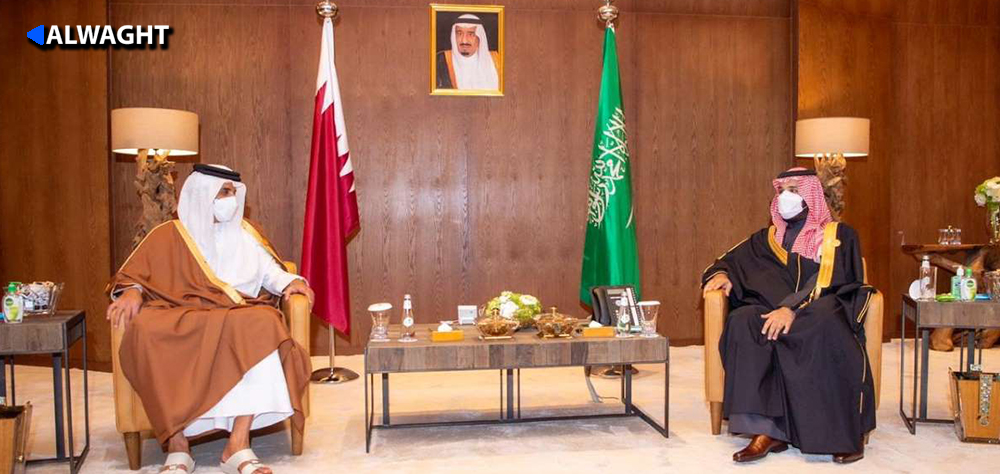Alwaght- Recently, the political developments in the West Asia region have remarkably moved towards a tendency of the regional rivals to deescalate tensions and give way to diplomacy.
Saudi reconciliation with Qatar and lifting the blockade imposed on Doha in 2017 and also the signals coming from Riyadh and Abu Dhabi for a détente with Ankara are the initial outcomes of such atmosphere.
Meanwhile, on Wednesday, Qatar said it is ready to mediate between Saudi Arabia and Iran, a proposal met in Tehran with affirmative reaction to unleash speculations about the Iranian-Saudi ties as one of the most complicated and important regional cases.
But how much is the regional political atmosphere ready for the Tehran-Riyadh reconciliation and what are the pushers and obstacles? What is driving Qatar– a country that itself just a couple of weeks ago was under pressure to cut off ties with– to make such a proposal? Apparent enough, Qatar's move represents Doha sarcasm against Riyadh and Abu Dhabi as the two failed to foist their conditions on the Qataris for rapprochement, namely a message against the reconciliation atmosphere.
The last week Qatar-Saudi reconciliation was followed by many unanswered questions. One of the ambiguities in the reconciliation was the ongoing difference over the Doha regional policies represented by relations with Iran and support to the Muslim Brotherhood. At the AlUla meeting, the Saudi Crown Prince Mohammed bin Salman repeated the unfounded and threadbare accusations against Tehran. Shortly after, Anwar Gargash, the unofficial Emirati policy mouthpiece, tied success of the incomplete reconciliation process to Qatar’s decision to sever relations with Iran and the Muslim Brotherhood axis.
However, Qatar's proposal to mediate Saudi-Iranian détente shows that Doha is far from intending to review intimate ties to its important northern neighbor and even finds such a step in stark contrast to its national interests.
On the other side, by the mediation offer, the Qatari leaders want to highlight their determination to solve one of the key obstacles of the completion of the rapprochement process, i.e. relations with Iran. In other words, the Qatari side wants to tell the Saudis that the success of the peace process within the (Persian) Gulf Cooperation Council relies on the engagement in relations with Iran and that these two are inseparable and overlapping.
With a picture of the Qatari goals in hand, we can now focus on the challenges and drivers of the mediation between Saudi Arabia and Iran.
The obstacles mainly originate from the Saudi side because Iran several times expressed its readiness for dialogue with its neighbors in the (P) GCC in general and Saudi Arabia in particular to settle the difference. Even after the recent announcement by Doha, Tehran immediately welcomed the proposal.
Ali Rabee, the Iranian government’s spokesman, said that the Islamic Republic has always been for de-escalation of the tensions in the region and wants the regional security to be provided by the Persian Gulf states. To this end, Tehran suggested forming a regional dialogue forum, non-aggression treaty, Hormuz Peace Endeavor (HOPE), four-point Yemen crisis settlement, and playing an active role in the Yemen peace process, Rabee said.
As it is clear from the spokesman's comments, Tehran wants comprehensive dialogue on the regional cases, mainly the Yemen war crisis. Saudi Arabia, as the incomplete reconciliation with Qatar makes clear, is incapable to tackle challenges it is facing in relations with neighbors without a genuine will to put on the table all of the dispute cases. Riyadh has never shown flexibility for negotiation in the Yemen case which is largely crisis-making when it comes to ties to Tehran. Despite humiliating defeats in Yemen, the Saudi rulers still insist on taking the wrong approach.
Although the government change in the US has been unpleasant to the Saudis, at the same time it can provide a chance for Al Saud to rethink their dead-ended policies in the confrontation of the Tehran-headed Axis of Resistance. It even can offer them a way for lower cost exit from Yemen quagmire.



























